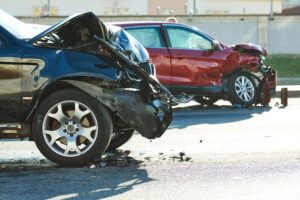
A car accident can be a traumatic event with potential serious physical consequences. For pregnant women, this risk is even graver as it could potentially lead to a miscarriage. The sudden impact, stress and trauma associated with a car accident can induce complications in pregnancy, including miscarriage.
A miscarriage, defined as the loss of pregnancy before the 20th week, is a devastating event for any expectant parent. It’s critical to understand the correlation between car accidents and a miscarriage to encourage necessary safety measures and prompt medical attention following motor vehicle crashes.

There are several types of injuries sustained in a car accident that can lead to a miscarriage. Each type poses a unique risk to the mother and the unborn child. Here’s an overview of injuries and their prevalence from one study:
It’s important to seek medical help immediately following a car accident if you’re pregnant, even if you feel okay. Early diagnosis of any potential issues can be critical to the health of the mother and baby.
It is difficult to confirm the exact prevalence of miscarriages caused by auto accidents. Given 10-20% of pregnancies end in miscarriage in the early part of pregnancy, establishing causation is difficult. However, one study estimates 1,500 to 5,000 fetal losses occur in the United States every year due to automotive crashes.
Other scholarly articles and research papers also support this finding, echoing the sentiment that motor vehicle accidents present a substantial risk to pregnant women and their unborn children. However, the statistical prevalence of miscarriages resulting form car accidents are likely highly underreported. Physicians frequently refrain from providing opinions on causation, so fetal death certificates often fail to document the potential role of recent maternal involvement in crashes as a cause of death.
To best prevent a miscarriage in a car accident, several safety measures must be adhered to:
Remember, it is essential to seek medical attention immediately after an accident, regardless of how minor it may seem. Some conditions and complications may not show symptoms immediately but could pose a significant risk to both the pregnant woman and the unborn child.

There are 4 primary standards applied by different U.S. states regarding the possibility of suing for the wrongful death of an unborn child. These standards are as follows (with links to the relevant statute or case precedent available by clicking on the state name):
Yes, it is possible to sue for the wrongful death of an unborn child after a car crash in several U.S. states. As shown above, the specific laws vary from state to state.
For example, in Texas the law regards a fetus as a separate individual when it comes to wrongful death claims. The Texas Wrongful Death Act allows parents to sue for the loss of their unborn child from fertilization to birth. In contrast, California does not allow for wrongful death claims regardless of the fetus’s viability.
As of 2024, there are 15 states that allow for wrongful death claims on behalf of a fetus from conception. Further, 3 states have a “quickening” standard that requires detection of fetal movement prior to death. There are 25 states that recognize a cause of action for the wrongful death of an unborn child by applying a viability standard. Six states do not allow for wrongful death claims on behalf of a fetus. Last, the state of Wyoming has no clear standard.
This brief overview of state laws underscores the importance of consulting with a legal professional who is familiar with the specific laws and statutes in your jurisdiction in the event of such a tragic incident. It’s crucial to understand your rights and potential legal remedies to make an informed decision about pursuing a lawsuit.
Proving that a miscarriage was directly related to an auto accident can be a complex process requiring strong evidence and expert testimony. Here are a few steps that may be involved:
While this evidence can help build a strong case, the specific requirements to prove causation will depend on the laws in your jurisdiction. It’s important to consult with a lawyer who can guide you through the legal process and help you gather the necessary evidence.
When pursuing a lawsuit for the wrongful death of an unborn child, the recoverable damages typically fall within two categories:
The specifics of what can be recovered often depend on the laws of the particular state where the lawsuit is filed. Certain states may also permit punitive damages, which are intended to punish the defendant and deter similar negligent behavior in the future. Nonetheless, it’s important to consult with a legal expert to understand the full range of potential damages that may be claimed in your unique case.
Yes, a pregnant woman involved in a car accident can generally claim no-fault insurance benefits. No-fault insurance, also known as Personal Injury Protection (PIP), is designed to pay for medical expenses and, in some cases, lost wages, regardless of who caused the accident.
This means that if a pregnant woman is injured in a car accident, her medical costs, including those related to any complications with her pregnancy resulting from the accident, can be covered up to the limit of the policy. However, it’s important to note that no-fault insurance laws vary greatly by state, so the coverage and benefits may differ.
Therefore, it’s crucial to understand the specifics of your policy and local regulations. For comprehensive information, always consult with an insurance expert or legal professional in your jurisdiction.
If you or a loved one has tragically suffered the loss of an unborn child due to a car accident, please know that you are not alone. Our compassionate and experienced legal team is here to guide you during this difficult time. We understand the emotional pain and confusion you may be experiencing, and we’re committed to fighting for the justice your unborn child deserves.
Contact us for a FREE CONSULTATION. We’ll listen to your story, provide legal advice tailored to your situation, and explain your rights and options moving forward. Call us today – you don’t have to navigate this challenging journey alone.







Thompson Law charges NO FEE unless we obtain a settlement for your case. We’ve put over $1.9 billion in cash settlements in our clients’ pockets. Contact us today for a free, no-obligation consultation to discuss your accident, get your questions answered, and understand your legal options.
State law limits the time you have to file a claim after an injury accident, so call today.